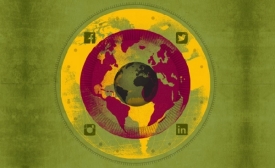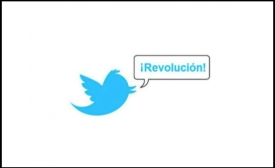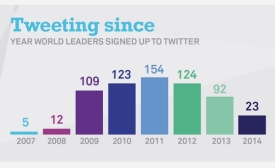digital diplomacy
As of yet, no Israelis have been killed during the latest Gaza offensive. 174-0 is a tough ratio to explain. Especially for an operation that Israel claims is being taken in self-defense against terrorists in Gaza. But the Israeli Prime Minister’s office may have found an answer to this minor public-diplomacy challenge: Tinder, a popular online smartphone dating/hookup app.

The current UNO publication, Numero 17, La Nueva Diplomacia, features articles focusing on new diplomacy and international relations, and includes a piece by CPD Director, Jay Wang titled Nation Branding Revisited. Other articles cover topics ranging from Soft Power and Digital Diplomacy to Economic Diplomacy and the role of non-state actors in diplomatic relations.
It took more than 120 minutes and a goal in extra time, but Germany emerged as the World Cup champion with a 1-0 win over Argentina on Saturday. Once the game ended, the Christ the Redeemer statue in Rio de Janeiro was illuminated in German colors, and Twitter was abuzz with responses to the tournament’s final game.
In 2011 Achref Aouadi and his friends, who fought for “Bread, freedom and human dignity!” during the revolution, established I Watch, a youth watchdog fighting against corruption on all levels of society. “We declared Sunday 13 July as National Voter Registration Day, and it has been really viral across social media,” explains Aouadi.

Professor Robert Albro on the intersections between diplomacy, technology, and social media.
After Thailand's government was toppled by the military, the new leaders of the country began imposing control over the media, preventing the spread of information. Now, one news organization is figuring out a way to do its job. In May, the Thai military junta, the de facto rulers of the nation, began censoring the media. The military enacted a total media blackout, depriving the Thai people of access to news and forcing news channels, including international ones like CNN and BBC, to stop broadcasting, according to Mashable.
Most often associated with Alec Ross’s stint at the State Department as Senior Advisor for Innovation, diplomacy’s rush to better leverage the advantages of social media and mobile technologies by investing in ediplomacy and PD 2.0 is no secret. On his first day as new Under Secretary for Public Diplomacy and Public Affairs last February, Richard Stengel made his position clear: social media are “transformational tools” and the State Department needs to move toward a “digital-first strategy.” Ambassadors now tweet regularly.

Burson-Marsteller’s report, Twiplomacy Study 2014, is an annual study that looks at the global use of Twitter by world leaders as they exercise Digital Diplomacy. According to this study, more than half of the world’s foreign ministers from every region of the world and their institutions are active on Twitter. The report discusses how Twitter is fostering "virtual diplomatic networks" as well as social marketing campaigns that rely heavily on Hashtag Diplomacy.







